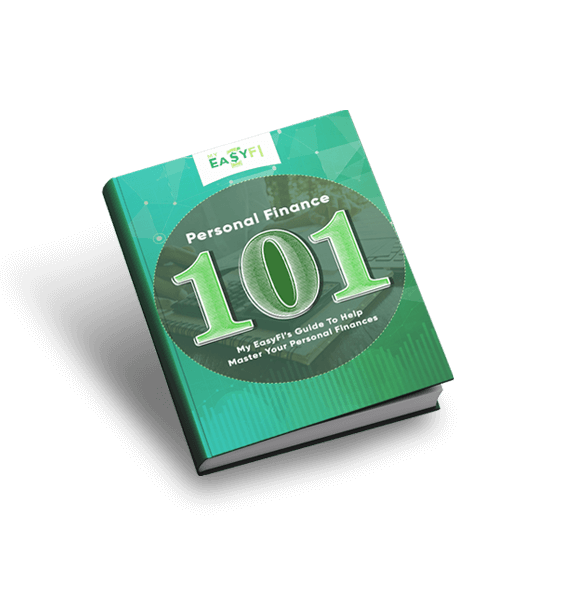Are you familiar with the Boogeyman from your childhood? No, not the wrestler. It’s the monster that would either creep under your bed or hide inside your closet while you’re asleep. But just because you grew into an adult didn’t mean the legend disappeared. Boogeyman evolved into money stress that does the same thing – keeping you up and worried all night.
Is Money Stress Root Of All The Other Stresses?
Financial stress is a real deal-breaker for many. According to the American Psychological Association’s report, 62% of Americans suffer from stresses related to money. This kind of stress pushes one to the depths of despair, thereby inviting negative thoughts to take over the mind. In that case, a healthy mind can get disrupted, and one stress could lead to several other problems.
You may think the probable solution to resolve this stress might be more money, right? Not exactly. A little more money could still lead to a hollow piggybank if you’re not familiar with the concept of financial management. It could lead to a lot more if you didn’t pay attention. Money stress can cost you not only your financial stability, but it could wreak havoc on your relationships, your job, or even your entire life.
Financial Stress And Health: Understanding The Links
So, what can you do to stop stressing about money? We say you try understanding first how stress affects your health. It comes as a pretext of worry, depression, or anxiety, where your body responds respectively. When these issues are left untended, they exhibit in the form of physical ailments like nausea, insomnia, fatigue, burnout, and headaches among many others.
Again, if you’re not seeking appropriate help, you may start developing self-esteem issues and see problems everywhere. Your financial stresses could make your relationships go cold, withdraw you from the society, and even push you to the verge of adopting negative coping habits like alcohol and drug misuse, gambling, and other illicit acts. More often than not, it could lead one to self-harm and, in the worst case, suicide.
10 Ways Of Breaking Through The Money Stress Barrier
Understandably, stressing over money could lead to disastrous impacts on your entire health, but you still have the power to turn the tables in your favor. At times, it might seem like the situation is out of your control and can’t be fixed, but several strategies teach you to smoothen the crumpled up financial mess.
Here are a few ways to break the toxic cycle for better financial stress management.
1. Talk To Someone
When the financial issues are too much to take in, some people find it hard to express it and try bottling the emotions they feel inside. Several factors could stagnate a person’s ability to share their situation, such as shame, guilt, embarrassment, and so on. If you fear judgment from other people, we suggest you talk to a trusted family member or friend.
Venting out about your financial crises will help you relieve yourself mentally. It will also enable you to develop a fresh perspective on how to tackle the situation without being controlled by overwhelming stress. All you can ask them is to lend an ear with you being honest about your situation and what worries you.
2. Get Professional Advice
Whether you have someone to talk to or not, there comes a time when getting some reliable emotional support with practical advice is all you need. You can either approach a local counseling organization for financial advice or see your community finance advisor who can help you come up with a robust backed-up plan.
Just remember, reaching out for help on your own is an effort. It’s nothing to be dismissed as a weakness. You haven’t failed anyone or yourself. If you recognize the problem and seek out help for yourself, it only means you are becoming aware of your situation and the stress surrounding it.
3. Start Keeping Track Of Your Finances
When you’re trying your luck with handling finances, and nothing seems to work, the most probable solution most people seek is to escape reality by not opening the bills, ignoring bank statements, and avoiding your creditor’s phone call. But that doesn’t make it the best option when you’re stressing over money. To cut the chase, think of taking a different viewpoint on the situation and take your time to plan your finances.
If you know someone better with money, ask them to help you come around the problem you’re facing. You can also use a finance tracking app or software that enables you to keep a better track of your money. It could also let you assess what you’ve been missing all along, giving you a chance to develop better strategies to take your finances seriously.
4. Make A Budget
A budget might make you feel like you’re stuck with a limited amount for the entire month, but in reality, it gives you a sense of freedom. It allows you to execute your plans perfectly without having to fall short on cash on any front. But before you plan a budget, it’s best to learn about what kind of budget you must create for your flexibility.
5. Create Plans And Glue To Them
In connection to creating a budget, sticking to it is by far the most important thing. If you’re going to manage your finances properly, following a plan of action will reduce the occurrence of scattered expenses, hence decreasing the primary cause of money stress.
Sure, one could feel lazy at times or want to have a cheat day because of the sale at their favorite store. The temptation might want to take over, but it’s up to you to decide and keep persistent to stabilize your finances.
6. Practice Stress Management
Stress can indeed affect your daily life, even if it’s stemming from your money problems. So, if you’re trying to make your finances come to terms with you, practicing some stress-management techniques could help you stay low-key on the stress meter. You can also implement some lifestyle changes to have a stress-free mind.
You can read more about adopting stress-related activities here.
7. Begin Paying Off Debt
People with every hair on their head caught in debt find a hard time coping with stress. Generally, debt isn’t something that cannot be managed or paid off. Even if you start today with an affirmation to become debt-free within a specific timeframe, you will start feeling the weight lifting off your shoulders.
Note down all your debts and start by paying the smallest first. It won’t be long for you to see things going back to normal again.
8. Calm Yourself Down
We understand that it’s hard to relax when you’re flooded with distracting thoughts about what should’ve been and what-ifs. It’s not easy. But it’s not impossible either to take a moment to reflect and ponder over the current situation. Since you are the boss of your finances and you’re the one who can control them, it’s better to take some time and think than panic and make hasty decisions.
Try remaining calm regardless of how nerve-wracking situation you’re confronting. It will only help you come up with thought-out plans to deal with your financial stress.
9. Look Toward A Better Future
Once you’re on track to securing your finances, the stress will itself reduce and you’ll see an overall improvement in your life. We suggest you create particular goals or set milestones and celebrate when you achieve one. By celebration, we don’t mean you spend extravagantly; it could be a nice breakfast treat, or a walk in the park, or doing anything that brings you inner peace.
The course of planning and acting might not be a smooth sail at the start, but that doesn’t mean that you can learn new ways and develop positive thoughts. You’ve still got time, and you can make your future better.
10. Kickoff A Secondary Income Source
The reason that we list money-making at the end is to have you cleared on the basics and then approach a convenient plan you can execute. Making money with a stress-cluttered mind is never a good option. So, once you have found your strength, you can then start searching for ideas that resonate with you.
Along with your primary income, you can either start a side business or join My EasyFi’s affiliate program to make some cash effortlessly. Just make sure you do something that you like to do, not that it increases your money stress.

